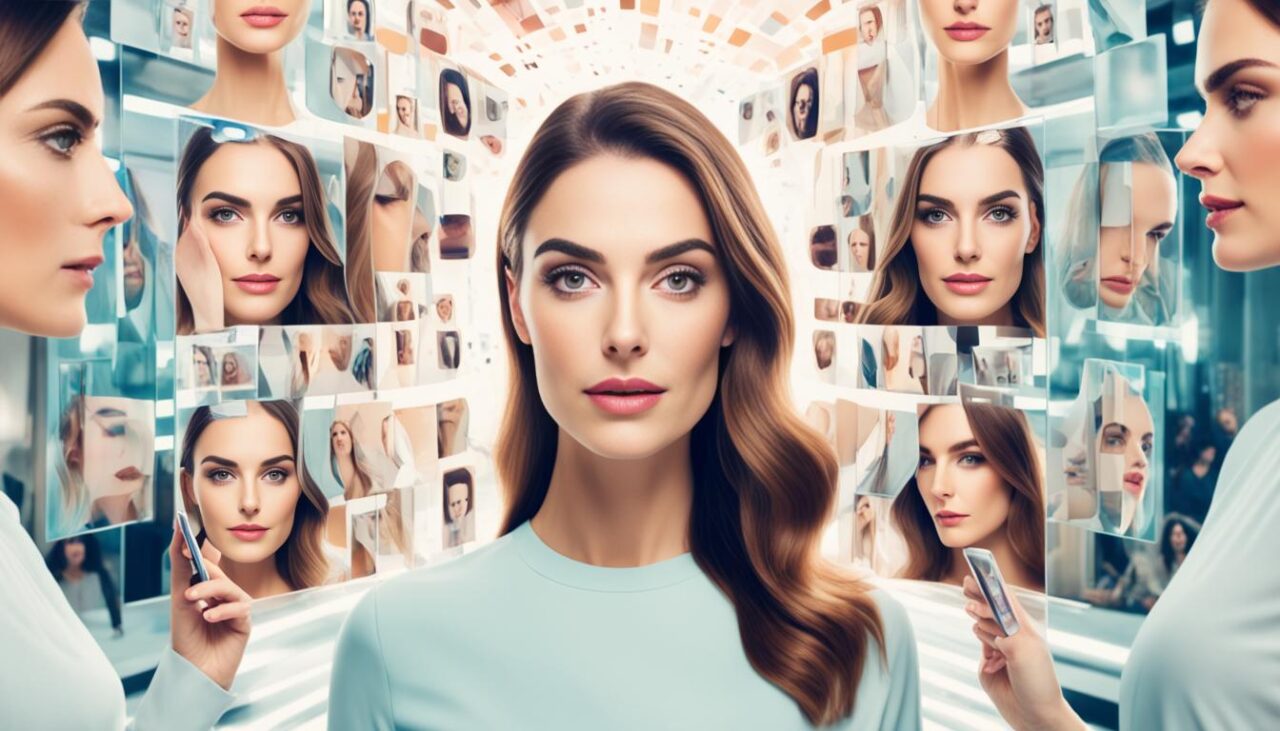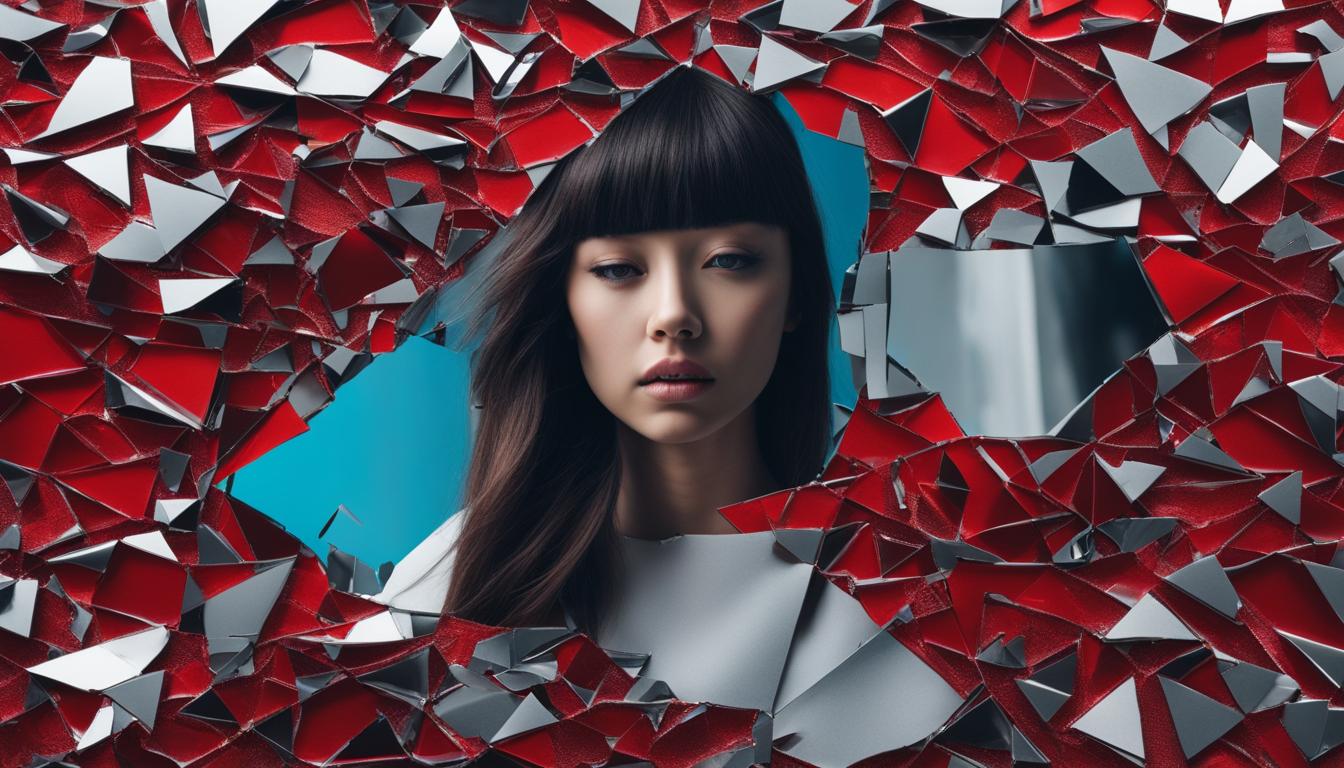Social media has become an integral part of our lives, shaping various aspects of society, including beauty norms. In the digital age, the online landscape has redefined the standards of beauty, with social media platforms playing a significant role.
The influence of social media on beauty standards cannot be overlooked. Platforms like Instagram, Facebook, and TikTok have become powerhouses for image-sharing and self-expression, creating a virtual space where beauty ideals are constantly showcased and perpetuated.
With the rise of social media influencers, hashtag trends, and viral beauty challenges, beauty standards are constantly evolving and being redefined. These digital beauty standards often prioritize flawless skin, sculpted bodies, and exaggerated aesthetic enhancements.
However, alongside these digital beauty standards, there has been a growing movement to challenge and redefine societal norms. Body positivity campaigns and inclusive beauty initiatives have gained traction, encouraging individuals to embrace their unique beauty and celebrate diversity.
Social media has become a powerful platform for promoting diverse representations of beauty, where individuals with various body types, ethnicities, and gender identities can thrive and inspire others.
As we navigate the complex relationship between social media and beauty norms, it is essential to critically examine the impact and influence that digital platforms have on our perception of beauty. By challenging and reshaping these norms, we can create a more inclusive and empowering digital environment for all.
The Influence of Social Media on Beauty Standards
Social media platforms have had a profound impact on beauty standards, influencing how we perceive and define beauty in the digital age. The immense power of social media influence, combined with the dynamic nature of internet culture, has transformed the way we view beauty and the standards we aspire to.
One significant factor contributing to the influence of social media on beauty standards is the rise of social media influencers. These individuals have amassed sizable online followings and have become authoritative figures in the beauty industry. Through their curated content and recommendations, influencers have the ability to shape trends and consumer preferences, ultimately redefining what is considered beautiful.
Hashtag trends also play a crucial role in shaping beauty standards. Viral hashtags such as #nofilter and #wokeuplikethis have created an atmosphere where natural beauty and flawless aesthetics are celebrated. By participating in these trends and conforming to their definitions of beauty, individuals seek validation and acceptance within the online community.
“Social media influencers hold immense power in setting beauty trends and shaping our perception of beauty.”
Viral beauty challenges further amplify the influence of social media on beauty standards. From the infamous “Kylie Jenner Lip Challenge” to the recent “Euphoria-inspired Makeup Challenge,” these challenges often promote specific beauty ideals and encourage users to replicate or adapt the looks associated with those ideals. As a result, they contribute to the perpetuation and normalization of certain beauty standards.
Additionally, the impact of internet culture on the representation of beauty cannot be overlooked. Online platforms enable individuals to create virtual representations of themselves, introducing the concept of “digital beauty.” With access to editing tools, filters, and virtual reality technologies, people can present idealized versions of themselves, blurring the line between reality and digital enhancement.

In today's interconnected world, social media platforms have become hubs where beauty standards are not only influenced but also propagated. From the power of social media influencers and viral trends to virtual representations and the impact of internet culture, these platforms have transformed the way we perceive and aspire to beauty.
Challenging Beauty Norms in the Age of Social Media
In today's digital age, social media has played a significant role in shaping and redefining beauty standards. However, alongside the pressure to conform to these digital beauty standards, there has been a growing movement to challenge and diversify societal perceptions of beauty.
One of the prominent movements that have emerged is the body positivity movement. It aims to promote self-acceptance and inclusivity by celebrating bodies of all shapes, sizes, and abilities. Through social media platforms, influencers and individuals have been using their voices to promote body positivity, encouraging others to embrace their unique beauty.
Furthermore, inclusive beauty campaigns have gained traction online, featuring models of various ethnicities, body types, and genders. This push for diversity in advertising and representation has challenged traditional beauty norms and opened up a dialogue about the importance of inclusivity in the beauty industry.
Hashtag trends have also played a significant role in amplifying these messages of diversity and challenging beauty norms. By utilizing popular hashtags such as #BeautyHasNoSize or #LoveYourself, these movements have gained visibility and sparked conversations on social media platforms. Through the power of hashtags, individuals have been able to connect and share their stories, affirming that beauty comes in many forms beyond what is conventionally portrayed.

